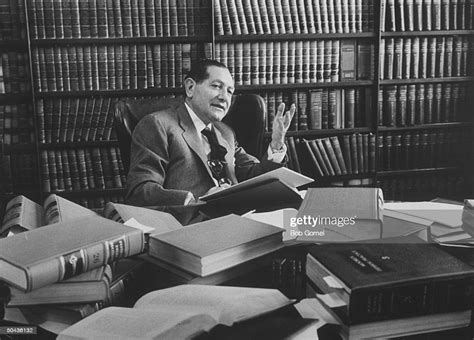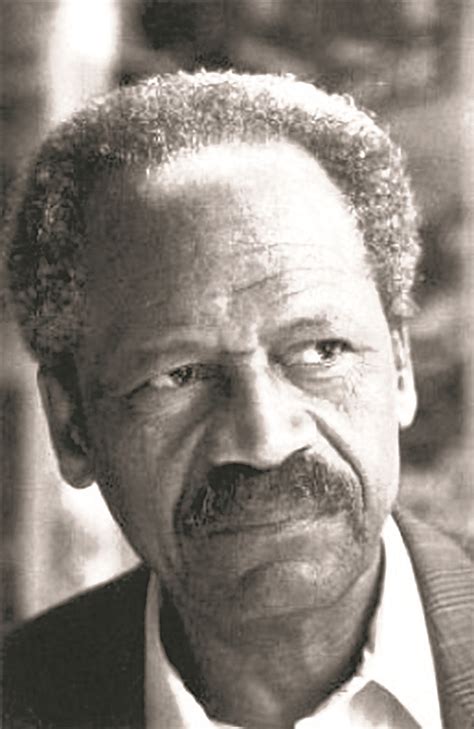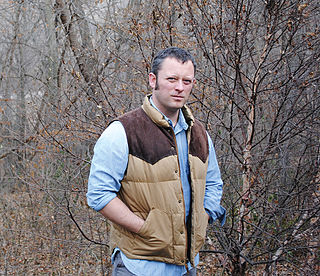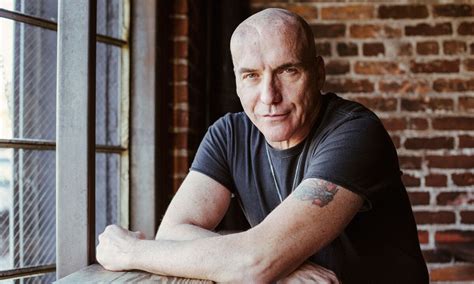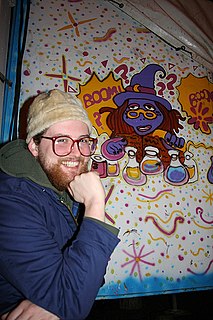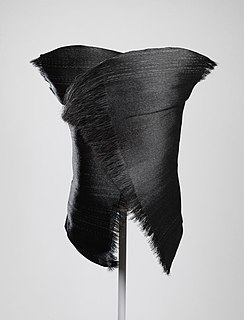Top 454 Texture Quotes & Sayings - Page 8
Explore popular Texture quotes.
Last updated on April 18, 2025.
I try to write about complex issues--young people in an adult world-- full of irony and contradiction in a narrative style that relies heavily on suspense with a texture rich in emotion and imagery. I take a great deal of satisfaction in using popular forms-- the adventure, the mystery, the thriller-- so as to hold my reader with the sheer pleasure of a good story. At the same time I try to resolve my books with an ambiguity that compels engagement. In short, I want my readers to feel, to think, sometimes to laugh. But most of all I want them to enjoy a good read.
All "if" statements about the past are as dubious as prophecies of the future are. It seems fairly plausible that if Alexander or Ghengis Khan had never been born, some other individual would have filled his place and executed the design of the Hellenic or Mongolic expansion; but the Alexanders of philosophy and religion, of science and art, seem less expendable; their impact seems less determined by economic challenges and social pressures; and they seem to have a much wider range of possibilities to influence the direction, shape and texture of civilizations.
Ah, my brother, it is a far harder thing, and it is afar higher proof of a thorough-going, persistent, Christian principle woven into the very texture of my soul, to go on plodding and patient, never taken by surprise by any small temptation, than to gather into myself the strength which God has given me, and, expecting some great storm to come down upon me, to stand fast, and let it rage. It is a great deal easier to die once for Christ than to live always for Him.
Historically, women's voices were central to food narratives, yet they were marginalized, and what happened at the table, the kitchen, the garden, and the fields was silenced. I'm very interested in how food appears in the historical record and animates our understanding of the South. It provides texture both to the past and to our contemporary experience. My work is not about discovering new voices, but rather it encourages voices that have been silenced to come forward and speak a little louder.
Some things cannot be spoken or discovered until we have been stuck, incapacitated, or blown off course for a while. Plain sailing is pleasant, but you are not going to explore many unknown realms that way. We articulate the truth of a situation by carrying the whole experience in the voice and allowing the process to blossom of its own accord. Out of the cross-grain of experience appears a voice that not only sums up the process we have gone through, but allows the soul to recognize in its timbre, the color, texture, and complicated entanglements of being alive.
Happiness can come in a single moment. And in a single moment it can go again. But a single moment does not create it. Happiness is created through countless choices made and then made again throughout a lifetime. You are its host as well as its guest. You give it form, shape, individuality, texture, tone. And what it allows you to give can change your world. Happiness can be stillness. But it isn't still. It wraps, enchants, heals, consoles, soothes, delights, calms, inspires and connects. It is on your face and in your body. It is in your life and being.
Why all this insistence on the senses? Because in order to convince your reader that he is THERE, you must assault each of his senses, in turn, with color, sound, taste, and texture. If your reader feels the sun on his flesh, the wind fluttering his shirt sleeves, half your fight is won. The most improbable tales can be made believable, if your reader, through his senses, feels certain that he stands at the middle of events. He cannot refuse, then, to participate. The logic of events always gives way to the logic of the senses.
I believe we all have lists of shame. Long lists. We live with our constellation of shames quite privately. But they weigh us down. I wish I could abracadabra away shame. This is such a waste of our small time on earth. Our bodies are often the focus of shame. The shame of the body changing. Of the sexual body. Of the aging body. Not being able to do what you once could do. Even just looking at your skin as you age, the texture, the wrinkle, the sag, and somehow feeling ashamed and responsible for its changes.
Once I'd worked out that I couldn't possibly expect people to enjoy a monstrous, 3000-page book, I realised I could in fact create a labyrinth of a story with four different points of entry. But what interested me was creating something that would rearrange itself every time you read one of the other books. So depending on which order you read them, the implications and angles would change. To get that right, each one of the books had to have its own personality and texture -- even though they are connected, they are very different creatures.
Many people with different backgrounds, cultures, languages, and creeds combine to make a nation. But that nation is greater than the sum total of the individual skills and talents of its people. Something more grows out of their unity than can be calculated by adding the assets of individual contributions. That intangible additional quantity is often due to the differences which make the texture of the nation rich. Therefore, we must never wipe out or deride the differences amongst us-for where there is no difference, there is only indifference.
Trees which grow in places facing the course of the sun are not of porous fiber but are solid, being drained by the dryness... The trees in sunny neighborhoods, therefore, being solidified by the compact texture of their fiber, and not being porous from moisture, are very useful, so far as durability goes, when they are hewn into timber. The lowland firs, being conveyed from sunny places, are better than those highland firs, which are brought here from shady places.
For me, the promised land, always seeming just beyond my reach, is the poetic masterpiece, that perfect union of words in cadence, each beckoned and shined and breathed into place, each moving in well-tried harmony of tone and texture and meaning with its neighbors, molding an almost living being so faithful to observable truth, so expressive of the mass of humanity and so aglow with the beauty of just proportions that the reader feels a chill in his legs or a catch in his throat.
A person is alive only to the degree that he or she is aware. To make the most of life we must constantly strive to be aware of the importance of being aware. Be aware of your senses and use them: So often we are distracted and unconscious of the riches our senses can pour into our lives. We eat food without tasting it, listen to music without hearing it, smell without experiencing the pungency of odors and the delicacy of perfumes, touch without feeling the grain or texture, and see without appreciating the beauty around us.
Black is the absence of all color. White is the presence of all colors. I suppose life must be one or the other. On the whole, though, I think I would prefer color to its absence. But then black does add depth and texture to color. Perhaps certain shades of gray are necessary to a complete palette. Even unrelieved black. Ah, a deep philosophical question. Is black necessary to life, even a happy life? Could we ever be happy if we did not at least occasionally experience misery?
Man is an onion made up of a hundred integuments, a texture made up of many threads. The ancient Asiatics knew this well enough, and in the Buddhist Yoga an exact technique was devised for unmasking the illusion of the personality. The human merry-go-round sees many changes: the illusion that cost India the efforts of thousands of years to unmask is the same illusion that the West has labored just as hard to maintain and strengthen.
After a time I found that I could almost listen to the silence, which had a dimension all of its own. I started to attend to its strange and beautiful texture, which of course, it was impossible to express in words. I discovered that I felt at home and alive in the silence, which compelled me to enter my interior world and around there. Without the distraction of constant conversation, the words on the page began to speak directly to my inner self. They were no long expressing ideas that were simply interesting intellectually, but were talking directly to my own yearning and perplexity.
If we got an educational program going, we could tell people, "Instead of butter, use avocado." That's something we eat, it has the good fat, and it has a good texture, and it tastes better. Just imagine if you substituted that. Or if we switched to olive oil, the extra virgin olive oil, we could still have our taquitos, but put a little oil on them and put them in the oven and bake them.
Mitchell Sanders was right. For the common soldier, at least, war has the feel-the spiritual texture-of a great ghostly fog, thick and permanent. There is no clarity. Everything swirls. The old rules are no longer binding, the old truths no longer true. Right spills over into wrong. Order blends into chaos, love into hate, ugliness into beauty, law into anarchy, civility into savagery. The vapors suck you in. You can't tell where you are, or why you're there, and the only certainty is overwhelming ambiguity.
Society is a more level surface than we imagine. Wise men or absolute fools are hard to be met with, as there are few giants or dwarfs. The heaviest charge we can bring against the general texture of society is that it is commonplace. Our fancied superiority to others is in some one thing which we think most of because we excel in it, or have paid most attention to it; whilst we overlook their superiority to us in something else which they set equal and exclusive store by.
STAY HOME FROM SCHOOL FAUX VOMIT: 1 cup of cooked oatmeal 1.2 cup of sour cream (or buttermilk ranch dressing or anything that smells like rancid, sour milk) 2 chopped cheese sticks (for chunkiness) 1 uncooked egg (for authentic slimy texture) 1 can of split pea soup (for putrid green color) 1/4 cup of raisins (to increase gross-osity) Mix ingredients and simmer over low heat for 2 minutes Let mixture cool to warm vomit temperature Use liberally as needed Makes 4 to 5 cups
These self-appointed deacons in the Church of Latter-Day American Literature seem to regard generosity (of words) with suspicion, texture with dislike, and any broad literary stroke with outright hate. The result is a strange and arid literary climate where a meaningless little fingernail paring like Nicholson Baker's Vox becomes an object of fascinated debate and dissection, and a truly ambitious American novel like Matthew's Heart of the Country is all but ignored.
First, consider the pen you write with. It should be a fast-writing pen because your thoughts are always much faster than your hand. You don't want to slow up your hand even more with a slow pen. A ballpoint, a pencil, a felt tip, for sure, are slow. Go to a stationery store and see what feels good to you. Try out different kinds. Don't get too fancy and expensive. I mostly use a cheap Sheaffer fountain pen, about $1.95.... You want to be able to feel the connection and texture of the pen on paper.
One of the many things I love about bound books is their sheer physicality. Electronic books live out of sight and out of mind. But printed books have body, presence. Sure, sometimes they'll elude you by hiding in improbable places... But at other times they'll confront you, and you'll literally stumble over some tomes you hadn't thought about in weeks or years. I often seek electronic books, but they never come after me. They may make me feel, but I can't feel them. They are all soul with no flesh, no texture, and no weight. They can get in your head but can't whack you upside it.
If I have ideas, I want to put them in the movie. It's not a minimalist approach at all but I feel like it's for the audience. It's about seeing how much texture we can give it and seeing how many things are there for people to latch on to... I just want to do it the way I want and I feel like it won't be helpful for me if I start worrying about that. I just have to follow my instincts. Everyone is going to respond differently to it and everybody's right - that's their point of view. That's how the story intersects with their lives.
Live a vital life. If you live well, you will earn well. If you live well, it will show in your face; it will show in the texture of your voice. There will be something unique and magical about you if you live well. It will infuse not only your personal life but also your business life. And it will give you a vitality nothing else can give.
The lives of individuals of the human race form a constant plot, in which every attempt to isolate one piece of living that has a meaning separate from the rest-for example, the meeting of two people, which will become decisive for both-must bear in mind that each of the two brings with himself a texture of events, environments, other people, and that from the meeting, in turn, other stories will be derived which will break off from their common story.
Race is a lie built on a lie. The first lie is that people are different, somehow skin color or hair texture is more significant than eye color, or the shape of one's feet. The second lie built on top of that is that there's a hierarchy that more significant difference, the color showing up as brown on your skin rather than brown in your hair, or whatever, is somehow more significant and there's some sort of hierarchy. That the lighter you are, the straighter your hair, the better you are.
I think my leap into TV and movies and comics is in a way natural because I'm a visual storyteller. If you look at any one of my short stories or novels, they sort of unscroll cinematically. Every scene is concrete in my mind. I can walk around the room and pick things up. I can describe at length every feature on the character, though I might only supply a glimpse of this on the page. So if I'm writing color into that I'm also writing texture, I'm pushing the image more than anything else.
Here's an easy one: "Race is an entirely social construct." No, it's partially one, depending on how any given society seeks to define it and its implications. But there are basic things such as skin color and hair texture. Even a Martian who'd had no exposure to human "social constructs" would be able to spot those differences. But no Martian, as hard as he tried, could point at a "culture" or to "equality." Those are the social constructs. Those can't be measured in the same way as human DNA.
Compared with this simple, fibrous life, our civilized history appears the chronicle of debility, of fashion, and the arts of luxury. But the civilized man misses no real refinement in the poetry of the rudest era. It reminds him that civilization does but dress men. It makes shoes, but it does not toughen the soles of the feet. It makes cloth of finer texture, but it does not touch the skin. Inside the civilized man stands the savage still in the place of honor. We are those blue-eyed, yellow-haired Saxons, those slender, dark-haired Normans.
I stalk certain words... I catch them in mid-flight, as they buzz past, I trap them, clean them, peel them, I set myself in front of the dish, they have a crystalline texture to me, vibrant, ivory, vegetable, oily, like fruit, like algae, like agates, like olives... I stir them, I shake them, I drink them, I gulp them down, I mash them, I garnish them... I leave them in my poem like stalactites, like slivers of polished wood, like coals, like pickings from a shipwreck, gifts from the waves... Everything exists in the word.
I think a lot of electronic musicians are drawn to starting with texture because the whole reason we're working with electronics is to try to create new sounds or sounds that cannot be created acoustically. When you're doing that, it's nice to be able to just create a different palette for every single song. I feel like a lot of electronic music sounds like...Each album sounds like a compilation more than it does a band.
Making clothing is not just about the application of style and technique. At some stage, you want to experiment with new materials, or experiment in making materials. When you have a material to yourself, you get to make something totally new based on how that material acts. The access afforded by this tannery pushes you beyond your comfort or knowledge zone of hue and texture, forcing you - the designer - to think about how that flat plane will act when it enters the third dimension.










